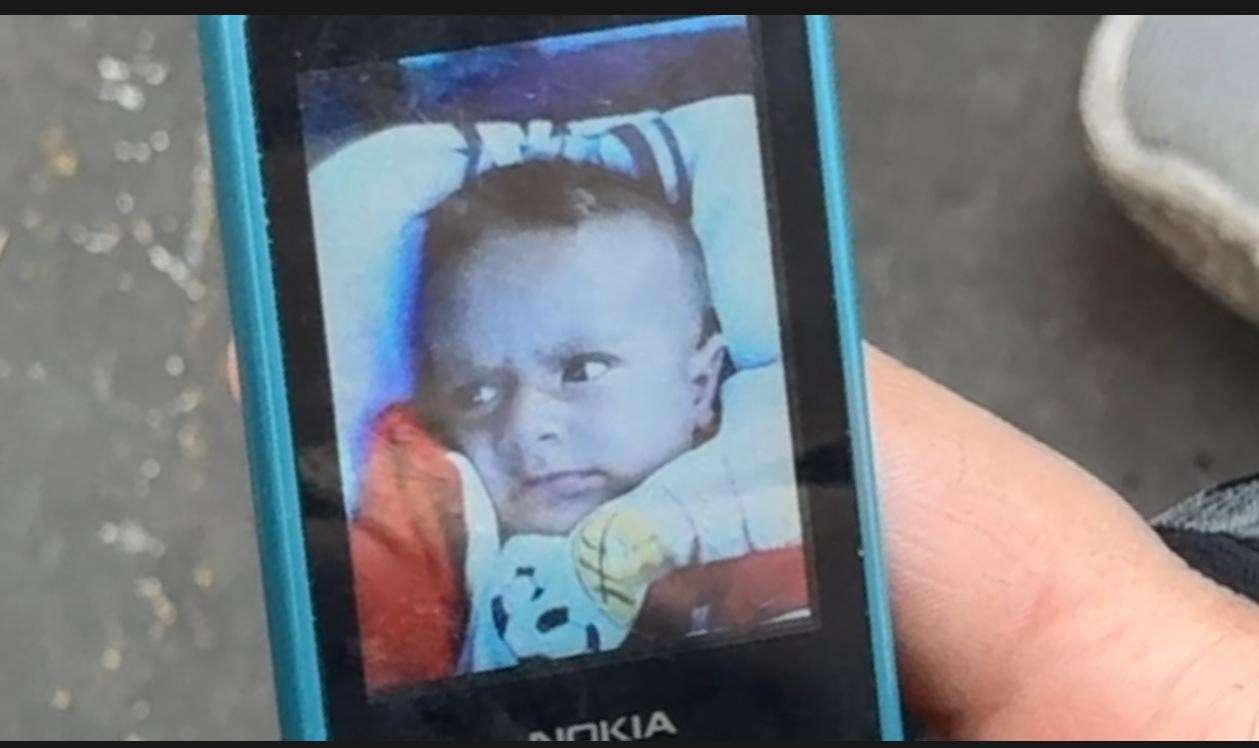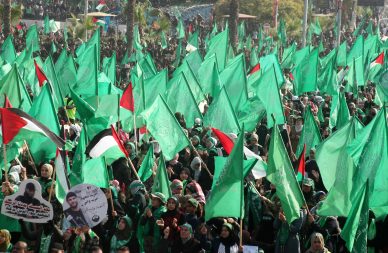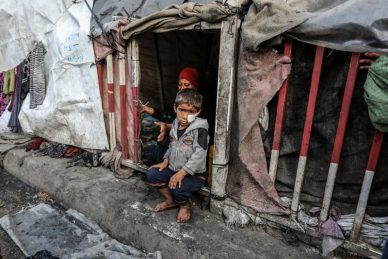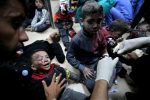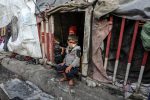GENEVA, (PIC)
The Euro-Mediterranean Human Rights Monitor has warned of the escalating risk of Israeli starvation policies on the population of the Gaza Strip, particularly among children and the elderly. This comes in the context of the ongoing genocide against them since October 7th of last year.
The Euro-Med Monitor, in a statement on Tuesday, cautioned against the growing risk of famine among 2.3 million people in the Gaza Strip, coinciding with a severe deterioration in health, nutrition, and food security. The situation is further exacerbated by the spread of infectious diseases and a severe shortage of healthcare, water, sanitation, and hygiene services.
The Monitor documented the death of the infant Jamal Mahmoud Jamal Al-Kafarna, from Beit Hanoun town in northern Gaza, due to starvation caused by the lack of adequate food for him and his mother.
Samah Youssef Al-Kafarna, the grandmother of the deceased infant, told the Euro-Med team that they had been displaced since the early days of the Israeli military attacks on the Gaza Strip to a tent in a schoolyard in Jabalia town. She mentioned their increasing suffering due to a lack of humanitarian supplies.
She explained that the mother of the infant, Jamal, suffered from dehydration due to a lack of food and water. She was forced to drink salty water, and her milk gradually dried up, affecting her ability to breastfeed her child. This resulted in his severe malnutrition and dehydration, especially in the absence of any alternatives to infant formula due to the blockade imposed on the Strip. The infant died of hunger in his mother’s arms on the 18th of the current month, according to his grandmother.
There have been several reported cases of death due to hunger, including the case of the 14-year-old girl, Janna Deep Qudeih, who had cerebral palsy and died on December 8th due to hunger and a lack of necessary oxygen in the Tayba school in the town of Abasan Al-Kabira, east of Khan Younis in southern Gaza.
The Euro-Med Monitor has previously documented several cases of death due to starvation, including the death of the infant Bara’a Al-Haddad, one and a half years old, from Gaza City on December 30th last year. The monitor also received testimonies of the deaths of elderly individuals in various areas of the Gaza Strip due to hunger and dehydration, including Samira Abu Barbar, 59 years old, Issam Al-Najjar, 63 years old, and Jouda Zaidan Shaker Al-Agha, 81 years old.
The Monitor reiterated that Israel has disregarded UN Security Council Resolution 2720, issued a month ago, regarding the expansion of humanitarian aid to Gaza. Israel continues to use starvation as a weapon against Palestinian civilians. The observatory stated that Israel has turned the mentioned resolution into mere ink on paper, similar to its other commitments under international law. Starvation of civilians in Gaza remains at unprecedented levels and threatens the spread of diseases due to food insecurity.
On December 22nd last year, the UN Security Council adopted a resolution, with the support of 13 members and the United States and Russia abstaining from voting, on Gaza and Israel. The resolution calls for urgent steps to immediately allow for the widespread, secure, and unimpeded delivery of humanitarian assistance and to create the necessary conditions for a sustainable cessation of hostilities.
The resolution requested the Secretary-General of the United Nations to appoint a Senior Coordinator for Humanitarian Affairs and Reconstruction Affairs responsible for facilitating, coordinating, and monitoring all shipments of humanitarian relief heading to Gaza and coming from non-party states, and verifying their humanitarian nature.
The Euro-Med Human Rights Monitor highlighted Israel’s continued extensive restrictions on the entry of humanitarian supplies into wide areas in the Gaza Strip, particularly in Gaza City and its northern parts, while almost limiting their distribution to the southernmost area of Gaza. This is happening at a time when tens of thousands of Palestinians are being forced to seek refuge in the city.
It warned that Israel persists in using starvation as a weapon in Gaza, despite the decision of the UN Security Council and repeated warnings from the United Nations against such practices, including the deliberate targeting of relief workers who should never be targeted.
Necessary steps to end famine
It emphasized that a permanent ceasefire in the Gaza Strip and the lifting of Israeli restrictions on the flow of humanitarian supplies, including enabling the humanitarian sector to provide multi-sectoral assistance, are vital initial steps to eliminate any risk of famine.
The Euro-Med Human Rights Monitor published the results of an analytical study on the 19th of last month, which included a sample of 1,200 people in Gaza. The study aimed to assess the impact of the humanitarian crisis on the population of the Gaza Strip amid the ongoing Israeli genocide since October 7th of last year.
The results showed that more than 71% of the study sample reported suffering from severe levels of hunger, and 98% of them said they suffer from insufficient food consumption. About 64% of them reported consuming grass, unripe fruits, expired food, and other items to alleviate their hunger.
Under international pressure, Israel restricted the entry of humanitarian supplies from Egypt to the Gaza Strip through the Rafah crossing, limiting it to an average of 100 trucks per day. These rates are incomparable to the average of 500 trucks that used to enter to meet the humanitarian needs of the Gaza Strip before October 7th of last year.
International law prohibits the use of starvation as a weapon
The Euro-Mediterranean Human Rights Monitor reiterated that international humanitarian law strictly prohibits the use of starvation as a means of warfare. As the occupying power in Gaza, Israel is obliged under international humanitarian law to provide for the needs of the population in Gaza and protect them.
It emphasized that deliberately starving civilians and depriving them of essential supplies for their survival, including deliberately obstructing relief supplies, constitutes a war crime according to the Rome Statute of the International Criminal Court.
The Euro-Med Monitor called for decisive international action to impose a ceasefire in Gaza and for the international community to fulfill its international responsibilities towards civilians in the Gaza Strip. It also called for preventing further deterioration of the situation for civilians by ensuring fair and unrestricted access to basic and relief supplies throughout the Gaza Strip, as well as providing necessary food, water, medical supplies, and fuel to meet the needs of the population.

